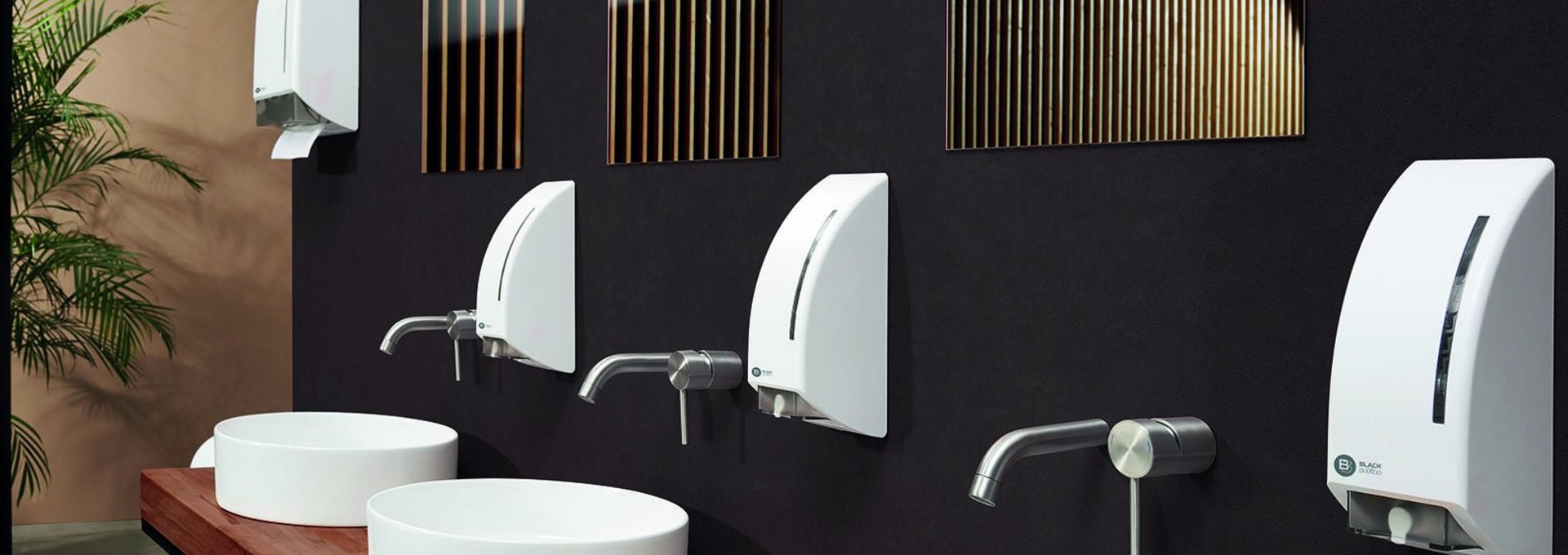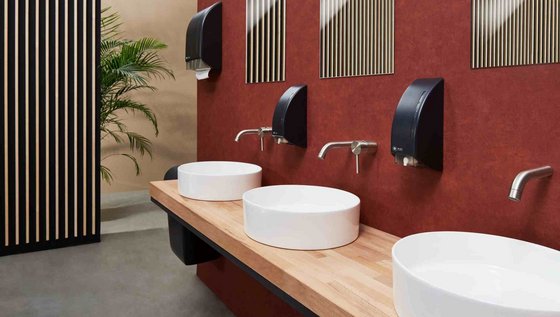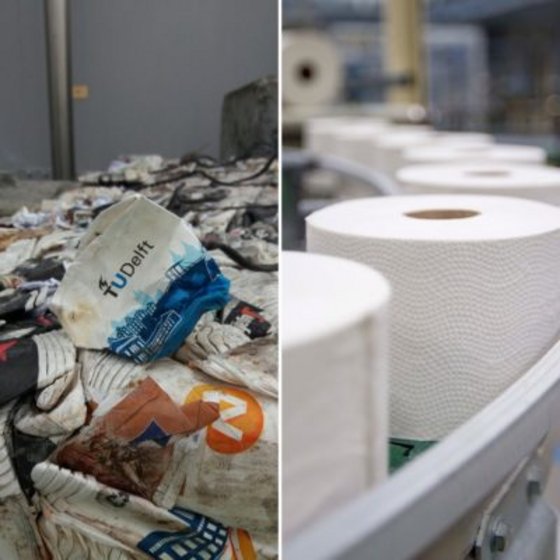

Carbon footprint
It's about more than just water
When people say washroom, they think first and foremost about saving water. However, each product has its own carbon footprint: hygiene papers, soaps and dispensers.
If you make a sustainable choice here, it will have a measurably positive impact on the carbon footprint of your complete organisation: BlackSatinohygiene paper uses less energy and water in production, saves resources such as fresh pulp and is produced without harmful chemicals; the BlackSatino dispensers are also made from recycled ABS and are circularly produced. All products are CO2 neutralised and Cradle to Cradle® certified.

Limited waste streams
A small room with great potential
To go one step further, i.e. to close product or material cycles, you work together with partners such as suppliers and waste management companies. As part of this, you determine whether the waste in your organisation yields raw materials that can be reused for new products – products that you then reuse yourself.
In practice, this often fails due to the complexity. A canteen for example has many different waste streams, from paper and glass to food scraps, so numerous suppliers and waste disposers are involved.
Washrooms are completely different. Here, the waste streams that can be reused as raw materials are limited: usually it's just towel paper. Since the supply chain (supplier, waste management company, manufacturer) is simple, the challenge is small – the effect, however, is significant.
BlackSatino circular service concept
Turn washroom waste into a raw material
With the BlackSatino circular service concept you transform your waste into raw material. Used towel paper is collected separately from you, then recycled and returned to your organisation in the form of hygiene paper: this way you not only avoid residual waste but also become part of an ideal, sustainable cycle – after all, circular economy is the future.
